Bathroom routines are a daily necessity, yet many of us unknowingly practice habits that can compromise our urinary health and overall well-being. From peeing “just in case” to sitting on the toilet incorrectly, these common behaviors can lead to various health issues such as urinary tract infections (UTIs), bladder dysfunction, and even back pain.
In this comprehensive guide, we explore five bathroom habits that we need to break immediately, backed by scientific research and expert recommendations. We will discuss why these habits are harmful, how they affect your body, and what you can do to change them.
Drawing insights from reputable sources such as Mayo Clinic and WebMD, our goal is to empower you with practical advice to improve your daily bathroom routine and prevent long-term health complications. Let’s dive into these five habits and learn how small changes can lead to big improvements in your health.
You Pee “Just In Case” – Why Waiting Until You Really Need to Go is Essential
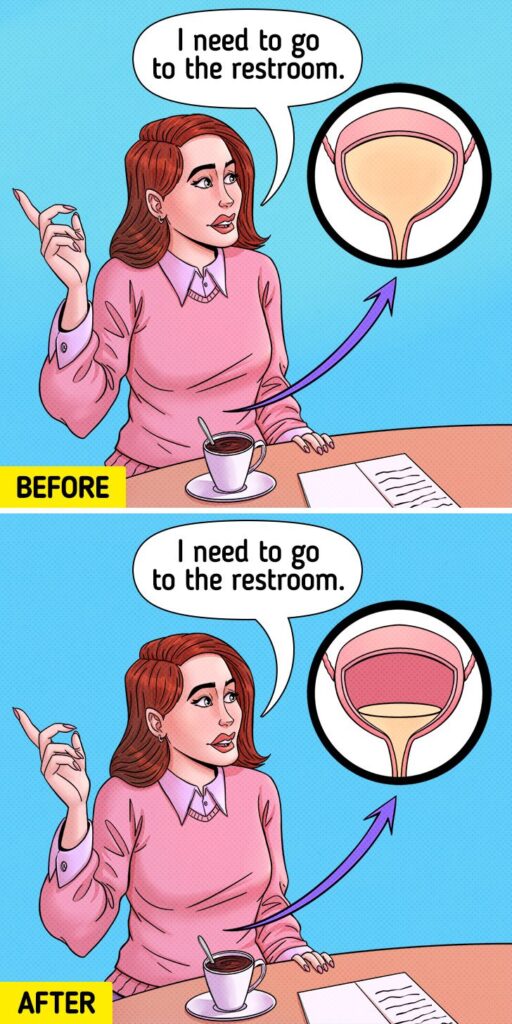
Many of us develop the habit of peeing “just in case” even when we’re not truly in need. While it might seem like a harmless precaution, frequent emptying of your bladder without a genuine urge can actually disrupt your body’s natural signals and lead to potential issues.
How This Habit Affects Your Body:
Weakening of Bladder Muscles: Constantly emptying your bladder without the natural buildup of urine can weaken the muscles over time. This can reduce bladder capacity and lead to a condition known as overactive bladder.
Disrupted Urinary Signals: Training your bladder to release urine prematurely can confuse your body’s natural cues, making it harder to recognize when it’s time to go.
Increased Risk of Infections: Frequent urination can also disturb the normal balance of bacteria in the urinary tract, potentially increasing the risk of urinary tract infections (UTIs).
What You Can Do:
Listen to Your Body: Try to only use the bathroom when you truly feel the urge to go. This helps maintain the natural cycle of bladder filling and emptying.
Gradual Training: If you’ve developed this habit over time, consider gradually increasing the interval between bathroom visits. This can help retrain your bladder to hold urine for a more appropriate duration.
Hydration Balance: Ensure you’re adequately hydrated, but avoid overdrinking fluids if you’re not thirsty. Both extremes can affect bladder function.
For more insights on bladder health and proper urinary habits, Mayo Clinic provides valuable resources on managing and preventing urinary issues.
You Push To Pee – Understanding the Risks of Straining During Urination
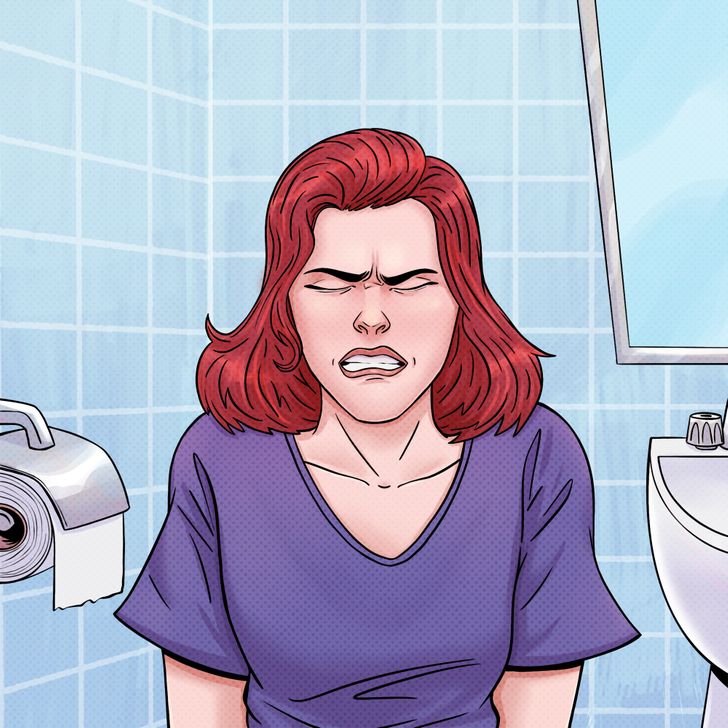
Some individuals habitually push or strain to start urination, especially when experiencing a slow flow or mild urinary hesitancy. Although occasional straining may seem necessary, consistently forcing your urine out can cause problems.
Potential Consequences of Straining:
- Increased Pressure on the Bladder: Straining increases intra-abdominal pressure, which can strain the bladder muscles and pelvic floor. Over time, this may lead to urinary retention or incontinence.
- Risk of Hemorrhoids: Frequent straining is not only hard on your bladder; it can also contribute to the development of hemorrhoids, as it raises pressure in the rectal area.
- Possible Nerve Damage: Over time, excessive straining may potentially lead to nerve damage that affects the bladder’s ability to function normally.
Tips to Avoid Straining:
Relaxation Techniques: Take a few deep breaths and relax before and during urination. This can help ease the process.
Proper Posture: Ensure you’re in a comfortable position while using the toilet. Leaning slightly forward may facilitate natural urination.
Medical Advice: If you consistently find it difficult to start urinating without straining, consult a healthcare professional. There may be underlying issues, such as an enlarged prostate or other urinary tract conditions, that need attention.
For further information on proper urination habits and preventing related health issues, WebMD offers comprehensive guidance on managing urinary health.
You Sit on the Toilet Incorrectly – The Importance of Proper Toilet Posture
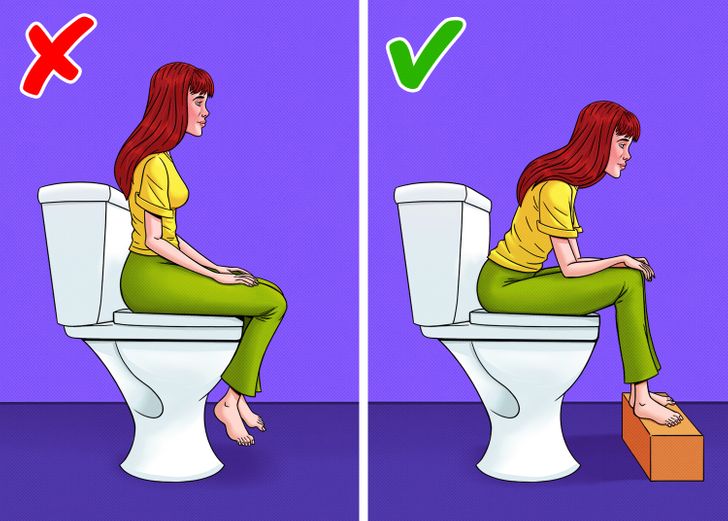
Believe it or not, the way you sit on the toilet plays a crucial role in your digestive and urinary health. Incorrect posture can lead to strain on your pelvic floor and even contribute to issues like constipation and incomplete bowel movements.
Why Correct Toilet Posture Matters:
- Optimal Bowel Movements: Sitting with your feet flat on the ground or on a small stool helps mimic a squatting position, which can relax the puborectalis muscle and allow for easier, more complete bowel movements.
- Reduced Straining: Proper posture minimizes the need to strain during bowel movements, reducing the risk of hemorrhoids and other complications.
- Improved Pelvic Health: Maintaining a natural posture on the toilet supports the alignment of your pelvic muscles, which is essential for both urinary and digestive health.
How to Improve Your Toilet Posture:
Use a Footstool: Consider using a footstool or a specially designed toilet seat riser to elevate your feet, encouraging a natural squatting position.
Sit Properly: Avoid slouching or leaning too far back. Sit with your back straight and your feet supported.
Mindful Positioning: Take a moment to adjust your posture before you begin, ensuring that you are as comfortable as possible.
For more tips on improving your toilet posture, check out Harvard Health Publishing and their recommendations on natural bowel movements.
You Limit Your Water Intake to Pee Less Often – Hydration and Its Role in Urinary Health
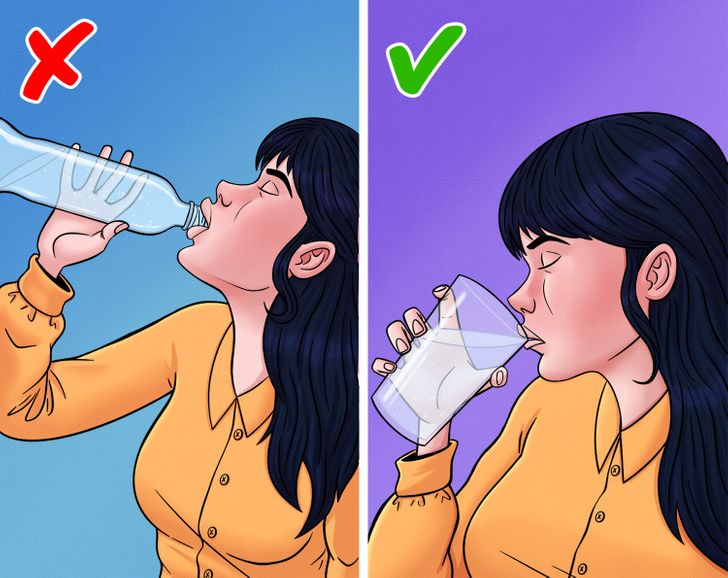
Some people deliberately limit their water intake in an attempt to avoid frequent trips to the bathroom. While this might seem like a convenient solution, reducing your water consumption can have serious negative effects on your overall health.
The Consequences of Insufficient Hydration:
- Concentrated Urine: When you don’t drink enough water, your urine becomes more concentrated, increasing the risk of kidney stones and urinary tract infections (UTIs).
- Reduced Kidney Function: Chronic dehydration can impair kidney function over time, as your body struggles to flush out toxins effectively.
- Digestive Issues: Adequate water intake is essential for digestion. Lack of hydration can lead to constipation and poor bowel regularity.
- Overall Fatigue: Dehydration not only affects your urinary health but also leads to overall tiredness and reduced energy levels.
Healthy Hydration Practices:
- Set a Daily Goal: Aim to drink at least eight 8-ounce glasses of water per day, though individual needs may vary. Adjust your intake based on activity level, climate, and overall health.
- Carry a Water Bottle: Keep a reusable water bottle with you at all times to remind yourself to stay hydrated.
- Flavor Naturally: If you find plain water boring, try adding slices of lemon, cucumber, or mint for a refreshing twist without added sugars.
For more guidance on hydration and its impact on health, resources like the Mayo Clinic provide evidence-based recommendations.
You Pee in the Shower – Why This Habit Might Not Be as Innocent as It Seems
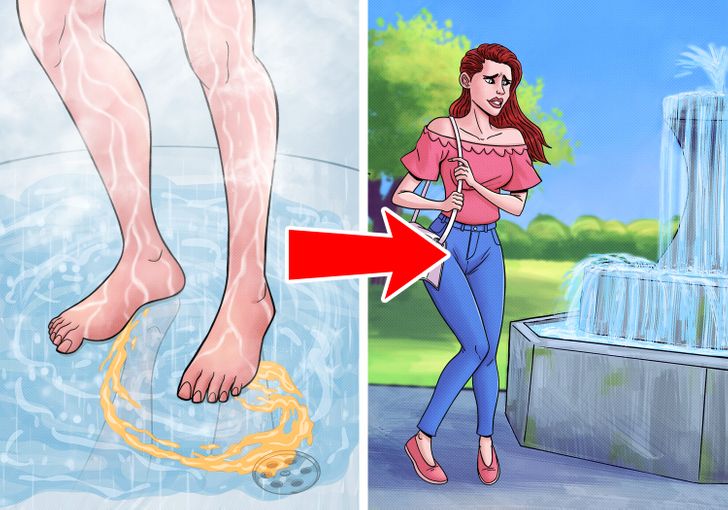
Peeing in the shower is a surprisingly common habit that many consider harmless or even eco-friendly. However, it may have unintended consequences on your hygiene and bathroom cleanliness.
Understanding the Implications:
- Hygiene Concerns: While urine is generally sterile, regular exposure to urine in your shower may lead to unpleasant odors or the growth of bacteria if not cleaned thoroughly.
- Plumbing Issues: Over time, recurring exposure to urine can cause mineral buildup in your shower and drain, potentially leading to plumbing issues.
- Social Stigma: Beyond the practical issues, peeing in the shower may be frowned upon in shared living spaces or public facilities.
Alternatives and Best Practices:
- Stick to the Toilet: The most hygienic option is to use the toilet for urination, ensuring proper cleaning and maintenance of your shower.
- Regular Cleaning: If you do choose to pee in the shower, make sure to clean the area regularly to prevent the buildup of residue and bacteria.
- Eco-Friendly Considerations: While saving water is commendable, there are other eco-friendly practices you can adopt that don’t compromise hygiene.
For additional information on bathroom hygiene and best practices, consider reviewing guidelines from the Centers for Disease Control and Prevention (CDC) on maintaining a clean and healthy home environment.
Bringing It All Together – Crafting a Healthier Bathroom Routine
Improving your bathroom habits is not just about individual actions; it’s about creating a comprehensive routine that supports your overall urinary and digestive health. By addressing these five habits—peeing “just in case,” pushing to pee, incorrect toilet posture, limiting water intake, and peeing in the shower—you can drastically improve your quality of life and prevent long-term health issues.
Actionable Steps for a Healthier Routine:
Listen to Your Body: Pay attention to your natural urges and avoid forcing your body into unnatural habits.
Practice Proper Posture: Adopt techniques like using a footstool to enhance your toilet posture and support your pelvic health.
Stay Hydrated: Make a conscious effort to drink enough water throughout the day to support your kidneys, bladder, and overall energy.
Educate Yourself: Stay informed about healthy bathroom practices by following reputable sources like Mayo Clinic and WebMD.
Develop Mindful Habits: Small changes in your daily routine can have a significant impact over time. Integrate mindfulness into your bathroom routine to ensure that every action you take supports your health.
The Broader Impact of Healthy Bathroom Habits on Your Well-Being
Improving your bathroom habits has a ripple effect on your overall health. Proper urinary and digestive practices can help prevent infections, reduce the risk of chronic conditions, and even improve your energy levels and mood. Healthy bathroom routines contribute to better kidney function, lower stress levels, and a cleaner, more hygienic living environment.
A well-maintained routine not only improves physical health but also boosts self-esteem and overall well-being.
Conclusion – Break These Habits Today for a Healthier Tomorrow
Our daily bathroom routines play a crucial role in our long-term health, yet many of us are unaware of the subtle habits that can lead to significant issues over time. By breaking the habits of peeing “just in case,” pushing to pee, sitting incorrectly on the toilet, limiting water intake to avoid bathroom trips, and peeing in the shower, you can safeguard your urinary and digestive health.
Taking control of your bathroom habits starts with self-awareness and a commitment to change. Embrace these scientifically-backed tips and expert recommendations to develop a healthier routine that supports your body’s natural functions. Small adjustments today can lead to major health benefits tomorrow—improve your bathroom habits and experience the difference in your overall well-being.
For further expert advice and more tips on maintaining optimal health, refer to trusted sources like the American Academy of Dermatology, Mayo Clinic, and WebMD. By staying informed and proactive, you can ensure that your bathroom habits contribute positively to a healthier, happier life.
Take charge of your routine today and enjoy the lasting benefits of a well-balanced, healthy lifestyle.









Leave a Reply